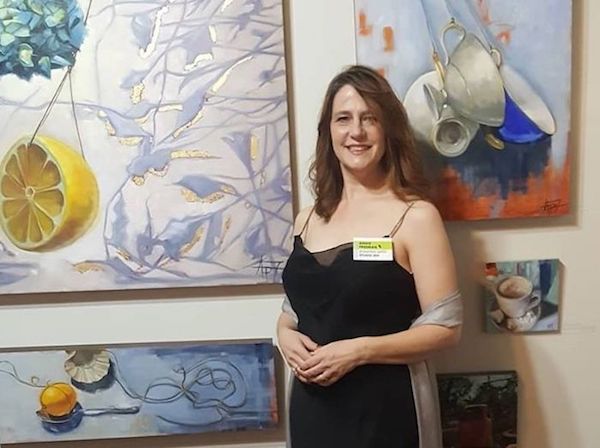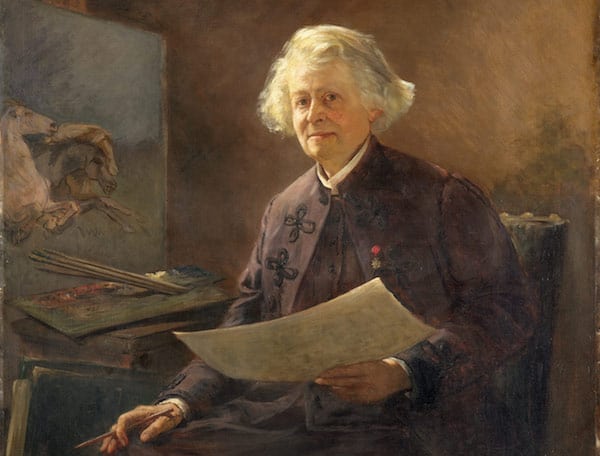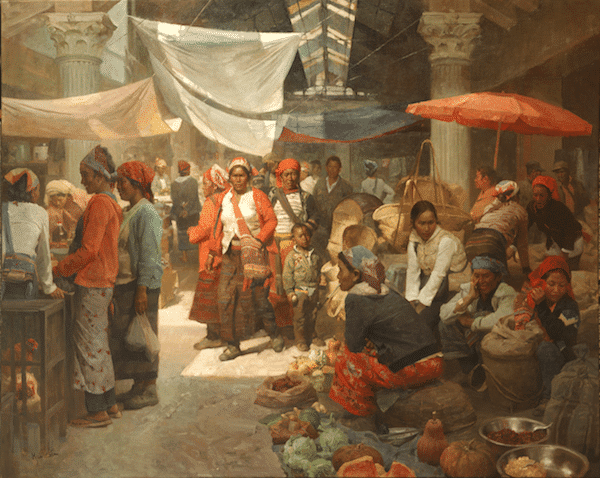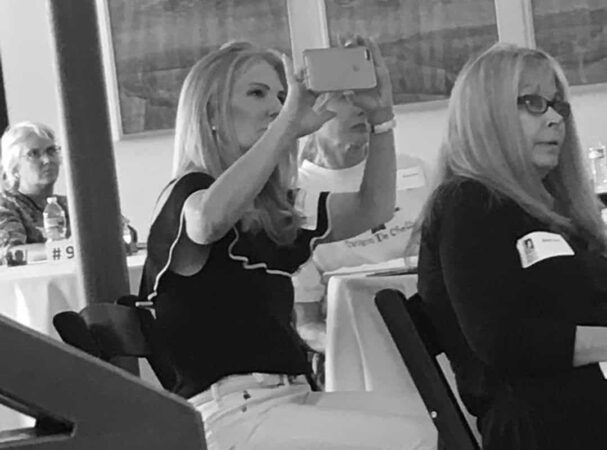What’s the secret of a successful art career?
Some artists are deluded by a sort of magical thinking that says, “If I make good art, customers will appear, and sales will happen.” Other artists see themselves as creators in their studios, gazing at prestige and success that are just out of reach, mystically controlled by others. They long for that agent or manager, rare as a unicorn, to step forward and wield the power that gets them from here to there.
These are fantasies, of course, and have little connection to the real world. In fact, “getting from here to there” often means that artists must enter, cultivate, and gain traction in the market themselves. It can be a long difficult slog that takes years of dedication, motivation, and sheer grit. Even if an artist has representation, they had to gain that representation first, which required self-direction and ambition—and even then, their work doesn’t end. They have to remain engaged in their businesses.
Succeeding as an artist is never just about talent. It requires hard work, becoming educated about business realities, and positioning oneself to take advantage of opportunities when they arise. Artists are rarely “discovered” by accident. Those who get the big breaks have strategically put themselves in the right place. They’ve made their own luck.
Can artists really learn how to make their own luck? Yes, absolutely. It takes thoughtful and deliberate planning, knowledge of the market, and a willingness to build a solid network of connections that can help an art career grow. It isn’t sexy, and it doesn’t occur overnight. Success is usually the result of many small steps taken consistently over time.
Business Skills Make the Magic Happen
Seasoned working artists know that reaching a higher level of success means staying relevant and agile in an ever-changing industry. They understand the importance of honing their business skills through ongoing training and peer networking. All of this takes engagement and effort but it can pay off in spades.

Painter Andie Freeman, a CHF Accelerator Fellow, is a great example of an artist who’s working her way toward her own full-time art business. She acknowledges the struggles involved but sees the benefits she’s derived from ongoing business training and engagement.
“Looking at what other artists have done to succeed doesn’t give you the whole picture. You need to set your own goals and determine whether or not something really fits for you,” she says. “I’ve learned that I must have intention behind my actions and keep those long-term goals in mind at all times. A lot of that knowledge comes from hearing other artists’ stories and discussing their experiences.”
Freeman has used her understanding of intention to develop an exhibition plan, make sales, connect with decision-makers, and drive those experiences toward a higher level of success.
“It’s a confidence booster to know that I have the skills to make this all happen,” she says, “and that I can do it myself as an individual artist.”
Business knowledge and skills are accessible to all artists who have the desire to learn them. There are abundant resources online (including CHF’s website, which has plenty of educational tools to get started right away). Networking and discussion groups—like our Thriving Art Exchange community—keep the conversation going. In-person training can provide an immersive experience that elevates an artist’s dream to a reality of their own making.
Forget magical thinking. The key to success is a commitment to pursuing business training that complements an art practice.






